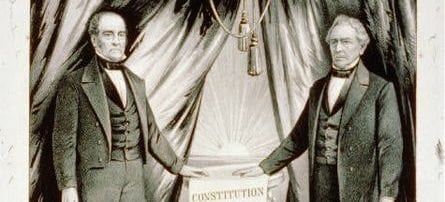A mass convention was held yesterday in Memphis, inaugurating a general movement in Tennessee for the reorganization of the civil government in the State. One of the features of the call, we observe, is that “emancipation immediate and unconditional is our best and only true policy.” The Unionism of the State has settled firmly on that principle.
It is extraordinary how completely the idea of gradual emancipation has been dissipated from the public mind everywhere, by the progress of events. Before the rebellion, it was accounted the very extreme of Anti-Slavery fanaticism to believe in the possibility of immediate emancipation without social ruin. The wisest Anti–Slavery men of the day, whether in this country or in Europe, assumed it almost as an axiom that there could be no transition from Slavery to freedom without an apprenticeship, or some other arrangement that should deaden the shock. All of the acts of emancipation by England and the continental nations, and by our own Northern States, whenever they applied to more than a mere handful of slaves, were invariably based on that assumption. It took our own State not less than twenty–eight years to consummate the gradual extinction of the system after the Emancipation Law was passed. Long after the rebellion opened, even when it had become a generally accepted fact that Slavery must come to an end, the idea still adhered that the emancipation must be gradual in order to be safe. President LINCOLN, in his recommendation to Congress of appropriations to induce the Border States to initiate a system of emancipation, was particular to make it apply only to gradual emancipation. Even so late as last June, the Missouri Convention passed its emancipation ordinance so framed that no slave should go free before 1870, and the younger ones not until long afterwards.
But all these gradual methods are now hardly more thought of than if they had been obsolete a century. The people of Missouri, through their Legislature, have convened another. convention to make a complete end of Slavery without delay. In Maryland immediate emancipation is the order of the day. The convention to frame the Free State Constitution, which is to be elected on the first Wednesday of April, and to meet on the last Wednesday of the same month, will not think of adopting any other plan. In Louisiana, in Arkansas, in Florida, and in fact wherever the purpose of emancipation is entertained at all, there seems to be an almost unanimous agreement that immediate emancipation is the wisest, and in fact the only practicable method.
The change of opinion on this subject is a remarkable illustration of the practical aptitude of the American mind. With hardly an effort, theories and prejudices, that had apparently rooted themselves in it so deeply as to become a part of it, are discarded, and new ideas, in keeping with a new condition of affairs, are conceived, and conformed to, almost by universal consent. It is recognised that whatever may be the advantage theoretically of gradual over immediate emancipation, the actual situation permits no option between the two. Gradual emancipation is, in truth, no longer a debatable matter, for there is nothing really left to graduate. Slavery now exists only in name. Its substance has been destroyed by the terrible attrition of the war.… When the military arm once has play, there is no such thing as a gradual severance of the bond between the master and slave. The rupture is intantaneous, and complete, and permanent. To undertake to renew the relation between master and slave for the sake of destroying it more scientifically would be only to prolong social confusion, and work unmixed evil to both races.








































































































































































































